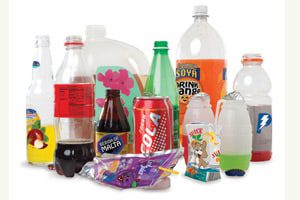
A recent study reveals that consumption of sugary drinks is tied to an increased risk of endometrial cancer in post-menopausal women. Prior research also found an association between sugar-sweetened beverages and Type 2 diabetes; however, this is the first study to see the same tie with a specific type of endometrial cancer, according to The […]
 A recent study reveals that consumption of sugary drinks is tied to an increased risk of endometrial cancer in post-menopausal women.
A recent study reveals that consumption of sugary drinks is tied to an increased risk of endometrial cancer in post-menopausal women.
Prior research also found an association between sugar-sweetened beverages and Type 2 diabetes; however, this is the first study to see the same tie with a specific type of endometrial cancer, according to The New York Times Well blog.
In 1986, 23,039 women, with an average age of 62 years of age, completed detailed questionnaires concerning lifestyle, medical history, and diet. The study group has been followed each year since 1986 for their incidence of cancer. Through 2010, according to the Well report, 506 Type 1 endometrial cancers and 89 Type 2 endometrial cancers were seen. Type 2 is the more serious form of endometrial cancer. The study was published, online, in Cancer Epidemiology, Biomarkers & Prevention and was conducted at the University of Minnesota.
The Harvard Food Frequency Questionnaire (FFQ) was the questionnaire used to determine respondent dietary intake, according to Medical News Today. The FFQ includes eating habits concerning127 food items consumed in the prior 12 months.
Type 1 endometrial cancer is estrogen-dependent, according to Medical News Today. Estrogen-dependent Type 1 endometrial cancer—sometimes known as uterine cancer—is the most common type of endometrial cancer. Typically, this type of cancer is diagnosed in women after the age of 55. The National Cancer Institute reports that there are some 49,560 new cases of endometrial cancer diagnosed annually; 8,190 of these illnesses are fatal.
The researchers discovered that all sugars increased risks for Type 1 endometrial cancer, but that it is sugar-sweetened drinks that have the strongest effect, according to Well. The team controlled for other factors and determined that the women in the highest one-fifth for consumption of sweetened drinks experienced a 74 percent increased risk for endometrial cancer when compared to the women in the lowest one-fifth of the group.
The researchers speculate that the sugars that are found in drinks, which are not the same as other dietary sugars, cause plasma glucose levels to both increase higher and drop lower, which might impact the role the beverages have on increased cancer drinks, according to Well. The risks appear to be dose dependent, Medical News Today indicated. “Although ours is the first study to show this relationship, it is not surprising to see that women who drank more sugar-sweetened beverages had a higher risk of estrogen-dependent type I endometrial cancer but not estrogen-independent type II endometrial cancer, said the lead author, Maki Inoue-Choi, PhD, MS, RD.
“I don’t want anyone to change their behavior based on these findings,” said Inoue-Choi, who is also a post-doctoral fellow at the National Institutes of Health (NIH). “We need to do more study to confirm this association. But I would advise people to follow dietary guidelines and avoid sugar-sweetened beverages.”


